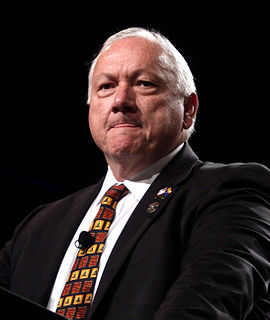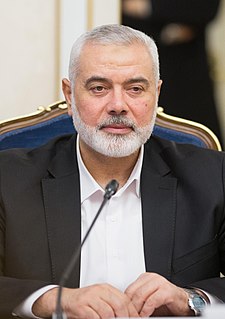A Quote by Bobby Sands
If a British government experienced such a long and persistent resistance to domestic policy in England, then that policy would almost certainly be changed... We have asserted that we are political prisoners, and everything about out country - our arrests, interrogations, trials, and prison conditions - show that we are politically motivated.
Related Quotes
The people have said yes to change and reform. The majority of the Palestinians have said yes to the slogan, 'Islam is the solution.' The people also voted in favor of our policy of resistance and against the occupation. Our policy is designed to defend Jerusalem, achieve the right of return for all refugees and the release of our prisoners.
Among the handful of British diplomats and military men aware of their government's secret policy in the Middle East-that the Arabs were being encouraged to fight and die on the strength of promises that had already been traded away-were many who regarded that policy as utterly shameful, an affront to British dignity.
This is the problem with foreign policy - talking about foreign policy in a political context. Politics is binary. People win and lose elections. Legislation passes or doesn't pass. And in foreign policy often what you're doing is nuance and you're trying to prevent something worse from happening. It doesn't translate well into a political environment.






































